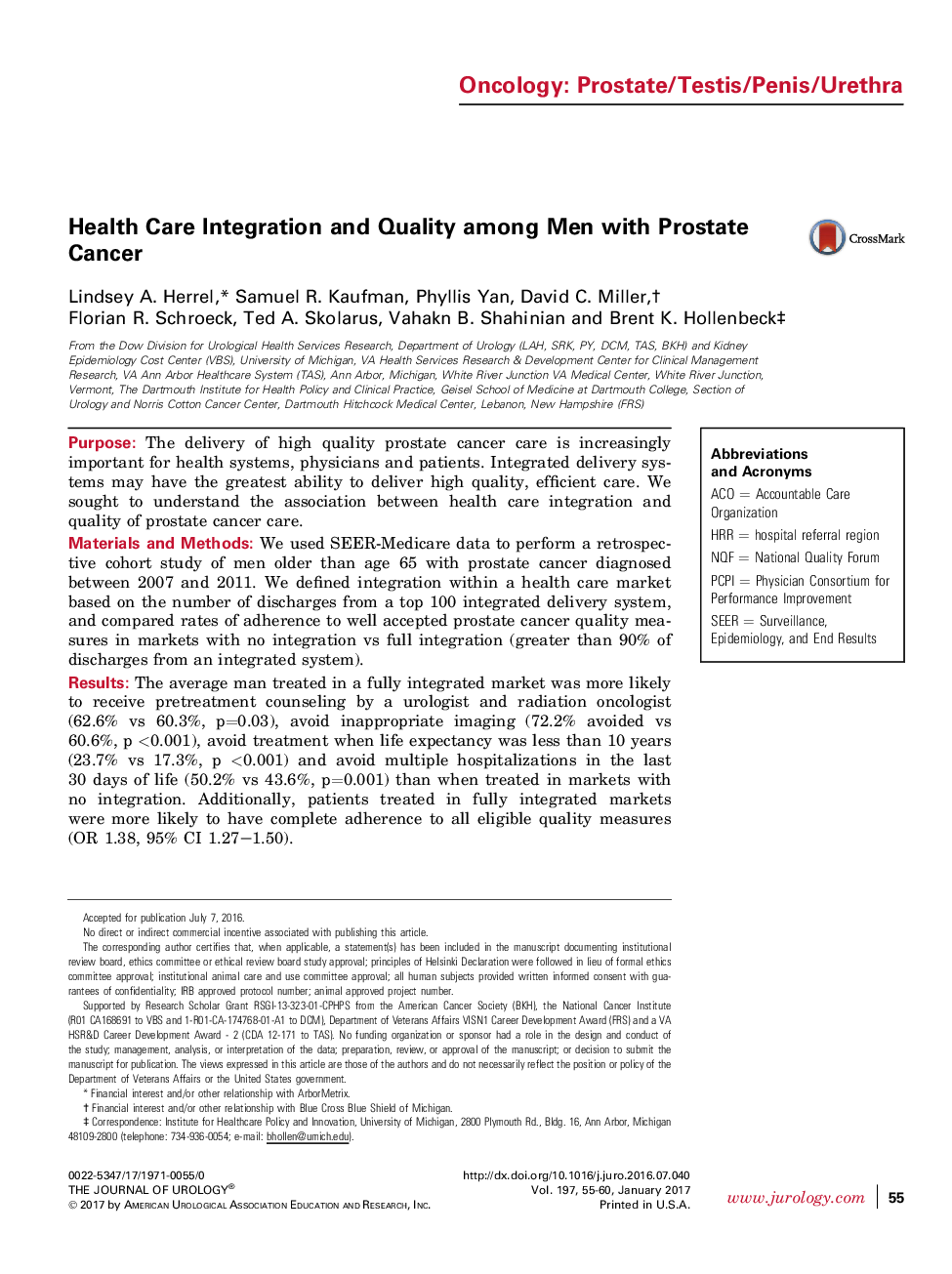| Article ID | Journal | Published Year | Pages | File Type |
|---|---|---|---|---|
| 5686406 | The Journal of Urology | 2017 | 6 Pages |
PurposeThe delivery of high quality prostate cancer care is increasingly important for health systems, physicians and patients. Integrated delivery systems may have the greatest ability to deliver high quality, efficient care. We sought to understand the association between health care integration and quality of prostate cancer care.Materials and MethodsWe used SEER-Medicare data to perform a retrospective cohort study of men older than age 65 with prostate cancer diagnosed between 2007 and 2011. We defined integration within a health care market based on the number of discharges from a top 100 integrated delivery system, and compared rates of adherence to well accepted prostate cancer quality measures in markets with no integration vs full integration (greater than 90% of discharges from an integrated system).ResultsThe average man treated in a fully integrated market was more likely to receive pretreatment counseling by a urologist and radiation oncologist (62.6% vs 60.3%, p=0.03), avoid inappropriate imaging (72.2% avoided vs 60.6%, p <0.001), avoid treatment when life expectancy was less than 10 years (23.7% vs 17.3%, p <0.001) and avoid multiple hospitalizations in the last 30 days of life (50.2% vs 43.6%, p=0.001) than when treated in markets with no integration. Additionally, patients treated in fully integrated markets were more likely to have complete adherence to all eligible quality measures (OR 1.38, 95% CI 1.27-1.50).ConclusionsIntegrated systems are associated with improved adherence to several prostate cancer quality measures. Expansion of the integrated health care model may facilitate greater delivery of high quality prostate cancer care.
